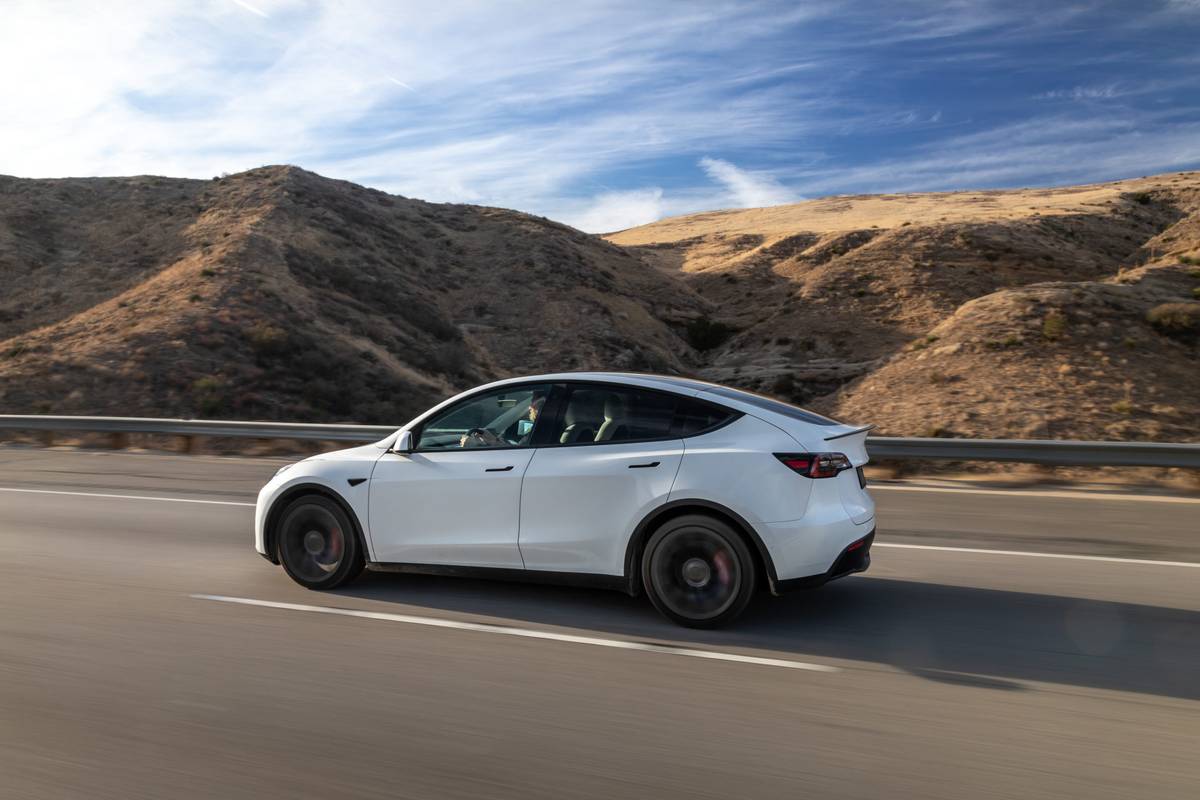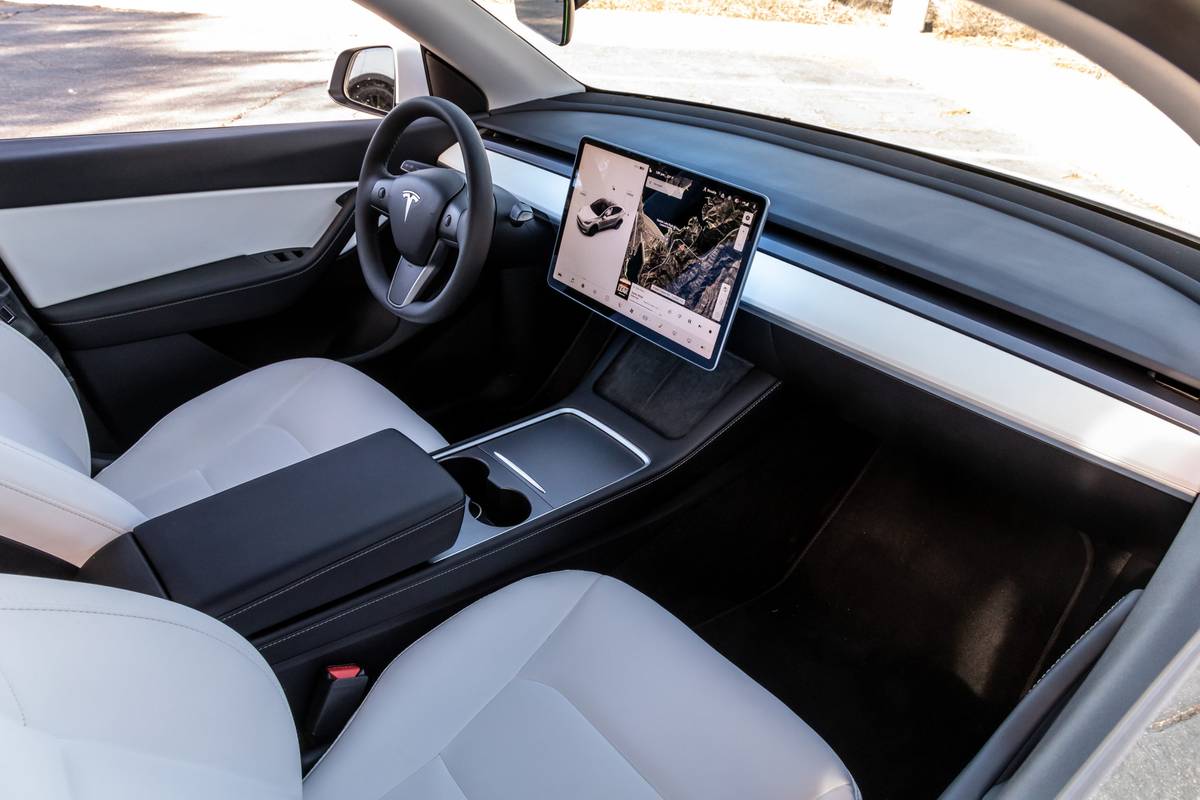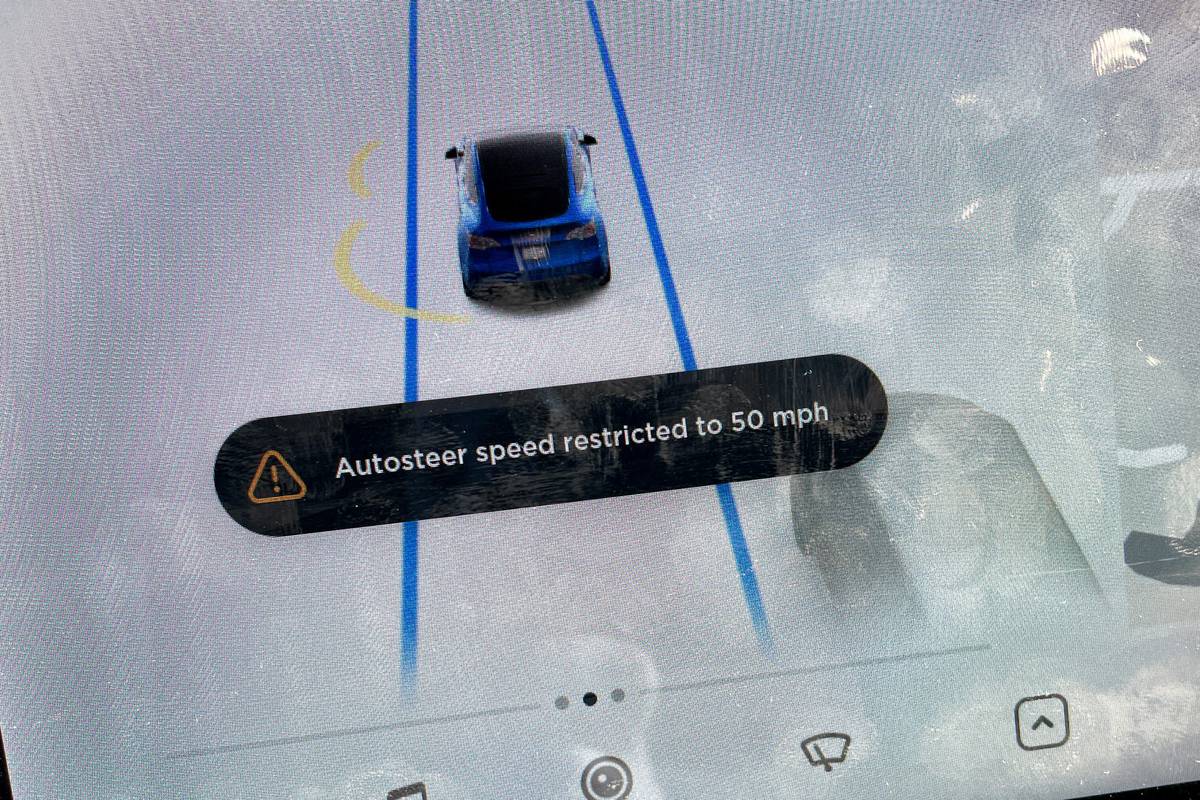Tesla Brings Back Enhanced Autopilot at Half the Cost of Full Self-Driving


Tesla shoppers who find the Full Self-Driving price tag too steep now have a more affordable alternative for upgrading the standard Autopilot driver-assist suite: Enhanced Autopilot. Enhanced Autopilot offers a middle ground between the two, with additional highway and parking assist features for $6,000 — half the price of FSD. Prior to the reintroduction of the mid-level package, Tesla shoppers could stick with standard Autopilot or upgrade to the more advanced (and pricier) set of features in the FSD suite.
Related: Which Cars Have Autopilot?
The “Enhanced” Features

Enhanced Autopilot was initially offered on all Tesla vehicles for $5,000, but in 2019, the automaker phased out the package and transferred the suite’s features into the pricier Full Self-Driving package, Automotive News reports. Enhanced Autopilot builds on the standard Autopilot features, which include adaptive cruise control with hands-on lane-centering steering.
Enhanced Autopilot brings more advanced capability, including Navigate on Autopilot and Auto Lane Change. Together, these features automatically steer the vehicle during common highway maneuvers, including taking on- and off-ramps and navigating lane changes. Several parking assist features are also added: Autopark automatically parks the car in parallel or perpendicular parking spaces, while Summon and Smart Summon can move the vehicle without a driver in it or bring the vehicle to the driver or a designated location (useful for navigating in or out of tight parking spots, for example).
The Enhanced Autopilot suite lacks additional driver-assist tech offered only through the FSD package. These features include Traffic and Stop Sign Control (currently in Beta) and Autosteer on City Streets, which is only available to a select group of Tesla owners through the automaker’s Beta program. Tesla’s website says Autosteer on City Streets will be rolled out to FSD-equipped vehicles in the future.
Costs
Adding Enhanced Autopilot will set you back $6,000, while going all in on FSD requires $12,000 upfront. FSD can also be added as a subscription for $199 per month for vehicles with Basic Autopilot or $99 per month for vehicles equipped with Enhanced Autopilot. All new Teslas come with standard Autopilot features.
Following a string of recent price hikes, Tesla once again raised prices on nearly every model in June: The base Model 3 is currently the most affordable with a starting price of $48,190, and the Model Y, Cars.com’s Best Electric Vehicle of 2022, starts at $67,190 (all prices include destination).
How Does It Work?

Since 2016, all new Tesla vehicles have been built with full-self driving hardware, and shoppers can upgrade to the Enhanced Autopilot or FSD packages at the time of purchase or add them on later. Originally, Tesla’s Autopilot system employed both radar and camera technology, but the automaker dropped the radar system in favor of a camera-based system in 2021; all new Teslas built since then use the camera-only system.
The “Autopilot” and “Full-Self Driving” monikers can be misleading, however. While Tesla says the technology will evolve over time, drivers currently are instructed to keep their hands on the wheel and pay attention at all times:
“Autopilot, Enhanced Autopilot and Full Self-Driving Capability are intended for use with a fully attentive driver who has their hands on the wheel and is prepared to take over at any moment,” reads Tesla’s website. “While these features are designed to become more capable over time, the currently enabled features do not make the vehicle autonomous.”
More From Cars.com:
- Tesla Replaces Radar Sensors With Tesla Vision Camera System
- 2021 Tesla Model Y Review: Have Your Cake and Eat It, Too
- Which Cars Have Self-Driving Features for 2022?
- When Hands-Free Ain’t Free: What’s the Cost of Self-Driving Tech?
- More EV news
Related Video:
Cars.com’s Editorial department is your source for automotive news and reviews. In line with Cars.com’s long-standing ethics policy, editors and reviewers don’t accept gifts or free trips from automakers. The Editorial department is independent of Cars.com’s advertising, sales and sponsored content departments.

Former News Editor Jane Ulitskaya joined the Cars.com team in 2021, and her areas of focus included researching and reporting on vehicle pricing, inventory and auto finance trends.
Featured stories




